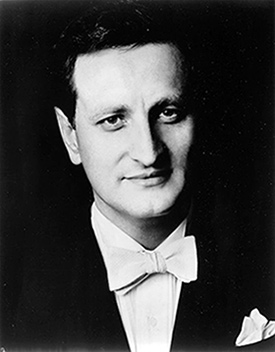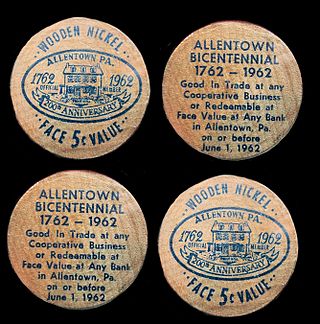Related Research Articles
Dude is American slang for an individual, typically male. From the 1870s to the 1960s, dude primarily meant a male person who dressed in an extremely fashionable manner or a conspicuous citified person who was visiting a rural location, a "city slicker". In the 1960s, dude evolved to mean any male person, a meaning that slipped into mainstream American slang in the 1970s. Current slang retains at least some use of all three of these common meanings.

Eduardo Mata was a Mexican conductor and composer.
Gook is a derogatory term for people of East and Southeast Asian descent. Its origin is unclear, but it may have originated among U.S. Marines during the Philippine–American War (1899–1902). Historically, U.S. military personnel used the word to refer to non-Americans of various races. The earliest published example is dated 1920 and notes that U.S. Marines then in Haiti used the term to refer to Haitians. It was widely used in Asia in both the Korean and Vietnamese wars.

In U.S. English slang, egghead is an epithet used to refer to intellectuals or people considered out-of-touch with ordinary people and lacking in realism, common sense, sexual interests, etc. on account of their intellectual interests.
In politics, a front-runner is a leader in an electoral race. While the front-runner in athletic events is generally clear, a political front-runner, particularly in the presidential primary process, is less so as a potential nominee may lead in the polls, have the most name recognition, the most funds raised, or a combination of these. The front-runner is most often declared by the media who are following the race and is written about in a different style than his or her challengers.
Shuckin' and jivin' is African-American slang for joking and acting evasively in the presence of an authoritative figure. It usually involves clever lies and impromptu storytelling, to one-up an opponent or avoid punishment. In Ribbin', Jivin', and Playin' the Dozens: The Persistent Dilemma in Our Schools, Herbert L. Foster writes: "Shuckin' and jivin' is a verbal and physical technique some blacks use to avoid difficulty, to accommodate some authority figure, and in the extreme, to save a life or to save oneself from being beaten physically or psychologically."

A sloppy joe is a sandwich consisting of ground beef, onions, tomato sauce or ketchup, Worcestershire sauce, and other seasonings, served on a hamburger bun. There are several theories about the sandwich's origin.
Spic or spick is an ethnic slur used in the United States for people from Spain, Latin American countries and states.

Placeholder names are intentionally overly generic and ambiguous terms referring to things, places, or people, the names of which or of whom do not actually exist; are temporarily forgotten, or are unimportant; or in order to avoid stigmatization, or because they are unknowable and/or unpredictable given the context of their discussion; to de-emphasize in which event the precise specification thereof is otherwise impossible, or to deliberately expunge.
Stuart Berg Flexner (1928–1990) was a lexicographer, editor and author, noted for his books on the origins of American words and expressions, including I Hear America Talking and Listening to America; as co-editor of the Dictionary of American Slang and as chief editor of the Random House Dictionary, Second Edition.
Barbara Ann Kipfer is a lexicographer, linguist, ontologist, and part-time archaeologist. She has written more than 80 books and calendars, including 14,000 Things to be Happy About (Workman), which has more than 1.25 million copies in print. The 25th anniversary edition of the book was published in 2014. She is the editor of Roget's International Thesaurus 5th-8th editions.
Swish is a US English slang term for effeminate behavior and interests (camp), emphasized and sanctioned in gay male communities prior to the Stonewall riots. This behaviour is also described as being nelly in British English, and both terms are often considered to be derogatory.

In the United States, a wooden nickel is a wooden token coin, usually issued by a merchant or bank as a promotion, sometimes redeemable for a specific item such as a drink.

"Holy cow!", an exclamation of surprise used mostly in the United States, Canada, Australia, and England, is a minced oath or euphemism. The expression dates to at latest 1905. Its earliest known appearance was in a tongue-in-cheek letter to the editor: "A lover of the cow writes to this column to protest against a certain variety of Hindu oath having to do with the vain use of the name of the milk producer. There is the profane exclamations, 'holy cow!' and, 'By the stomach of the eternal cow!'" The phrase appears to have been adopted as a means to avoid using obscene or indecent language and may have been based on a general awareness of the holiness of cows in some religious traditions.

The Historical Dictionary of American Slang, often abbreviated HDAS, is a dictionary of American slang. The first two volumes, Volume 1, A – G (1994), and Volume 2, H – O (1997), were published by Random House, and the work then was known as the Random House Historical Dictionary of American Slang, sometimes abbreviated as RHHDAS. Both volumes used the same ISBN, ISBN 0-394-54427-7; the paperback editions are ISBN 978-0-394-54427-4 for Volume 1 and ISBN 978-0-679-43464-1 for Volume 2.

Redneck is a derogatory term chiefly, but not exclusively, applied to white Americans perceived to be crass and unsophisticated, closely associated with rural whites of the Southern United States.
Robert Lundquist Chapman was an American professor of English literature who edited several dictionaries and thesauri.

A food paste is a semi-liquid colloidal suspension, emulsion, or aggregation used in food preparation or eaten directly as a spread. Pastes are often highly spicy or aromatic, are often prepared well in advance of actual usage, and are often made into a preserve for future use. Common pastes are some fruit preserves, curry pastes, and nut pastes. Purées are food pastes made from already cooked ingredients.
Madeleine Mathiot was a Professor emerita of Linguistics at the University at Buffalo in Buffalo, New York.
Harold Wentworth (1904-1965) was an American lexicographer and specialist in English usage and slang in the United States. Born in Cortland, New York, he studied at Cornell University and taught at Cornell University and the University of West Virginia.
References
- ↑ Reynolds, Horace (30 July 1960). "HOW TO DIG THE HIPS' YACKETY-YAK". New York Times. pp. 41, 57. Retrieved 7 January 2018.
- ↑ Kipfer, Barbara Ann; Chapman, Robert L. "Dictionary of American Slang 4e". HarperCollins US.
- ↑ Chapman, Robert L.; Kipfer, Barbara Ann; Wentworth, Harold (1995). Dictionary of American slang. HarperCollins. LCCN 97002771.
- ↑ "Dr. Albert H. Marckwardt Dies; Taught English and Linguistics (Published 1975)". The New York Times. 22 August 1975. Retrieved 4 January 2021.
- ↑ Marckwardt, Albert H. (1961). "The Lexicography of Slang". American Speech. 36 (4): 278–280. doi:10.2307/453802. ISSN 0003-1283. JSTOR 453802.
- ↑ Mathiot, Madeleine (1962). "Review of Dictionary of American Slang". American Anthropologist. 64 (3): 672–676. doi:10.1525/aa.1962.64.3.02a00490. ISSN 0002-7294 . Retrieved 4 January 2021.
- ↑ Langguth, Jack (12 July 1963). "SLANG DICTIONARY SPELLS TROUBLE; California Debates Issue of Its Access to Youth Opposes Book Burning". New York Times.
- ↑ "Council Asks Dictionary of Slang Study: Wants to Find if Book Violates Obscenity Laws". Los Angeles Times. 21 June 1963. Retrieved 4 January 2021.
- ↑ "Topics; Chuckles, Zones and Bones; Strangling Language". The New York Times. 31 December 1981.